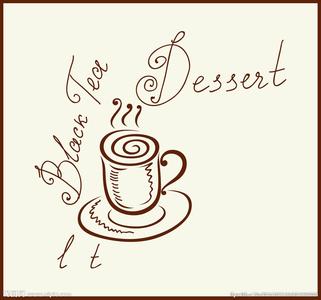Lares Yaoko Coffee Bean Variety Planting Market Price Profile

Island Coffee-Puerto Rico
And Jaime Fortuno, president of Escogido Yauco agency, quietly watches every year, even in the tiniest detail. Fortuno is an investment banker who graduated from Harvard Business School. He was determined to seize every opportunity to open up a market for premium coffee in Puerto Rico. He expects a maximum annual production of 3000 bags of 45 kilograms each, which is less than 1 percent of the island's total coffee production.
That's why Puerto Rico and Puerto Rico Yuco Selecto are different. Yuco Selecto is Manor Bean, a brand jointly launched by San Pedro, Caracolillo and La Juanita in Puerto Rico.
On September 23, 1869, the people of Puerto Rico, led by R. Emétrio Betancés, staged an uprising in the town of La Rez (known as the "La Rez Voice"). On September 24, they declared the establishment of a republic, which was suppressed by Spanish colonial forces. After a long struggle, Puerto Rico was finally granted the right to local autonomy by Spain. However, only one year elapsed between this time and the island becoming an American colony after the Spanish-American War. [4]
In 1898 the Spanish-American War broke out and Spain was defeated. According to the Treaty of Paris, Puerto Rico was ceded to the United States. The administrative authority of the United States over Puerto Rico first took the form of a military government. During its two years of rule over the island, the military government built schools, roads, railways, hospitals and health facilities. In 1900, the United States Congress established civilian control over the island. The President of the United States appoints the Governor, Cabinet and one of the two houses of Puerto Rico's legislature. Puerto Rico elects the other house of the legislature and a capital-based commissioner who will represent the island's interests in Washington and have a voice but no vote in Congress. Puerto Rico is also exempt from paying United States taxes.
In 1917, Congress passed the Jones Act, imposing "American citizenship" on the people of Puerto Rico.
In 1937, the people of Puerto Rico staged an independence uprising in Ponce, led by P. Albizu Campos, leader of the Nationalist Party of Puerto Rico, but it was suppressed again.
In 1947, the United States Congress allowed an elected governor to Yauco, an area of 176.5 square kilometers in southern Poland, named for the production of Tainos, but residents prefer to call themselves la Ciudad del Café (City of Coffee) and la Capital Taína (Center of Tainos). In the 1960s, immigrants from Corsican improved coffee growing conditions and pioneered the application of the flower machine to the coffee peel removal process, making Puerto Rico a prominent coffee representative, ranking sixth in the world in terms of production and sales.
The Spanish-American War of 1889 ended in American victory, ending more than 400 years of Spanish rule over Puerto Rico. Demand for sugar increased dramatically in the United States, hurricanes destroyed most coffee plantations, and natural and man-made disasters hit Puerto Rico's coffee industry hard.
Puerto Rico's national economy developed rapidly in the 20th century. Stimulated by the strong support of the government and the expanding demand of the local market, Puerto Rico's coffee gradually recovered its former glory. The Yauco region is internationally known for its rich Body, creamy, red wine finish and chocolate-nut finish. Puerto Rico's new crop coffee is a mild, supple, well-balanced island bean. The dry aroma has an attractive single malt sweetness, which is extremely sweet when sipped in the cup. The medium toasted cream and oily texture are often suitable for Puerto Rico island beans. Product description: The history of coffee in the Caribbean Sea has a lot to do with the Spanish name transfer. In the 18th century, coffee in various places was not so important. The most important work was to grow sugar crops in fertile valley land. In the early 19th century (1800), the residents of Coscia Island in the French Mediterranean migrated to Puerto Rico. Because the valley land had been occupied by Spanish immigrants, they chose to settle in the southwest mountains of the island. Most of them were near Yuco City. Because of their hard work and determination, coffee cultivation brought them good returns. They dominated the island's coffee industry in the 1860s. At that time, Puerto Rico's coffee bean production was the sixth highest in the world. Those Corsican immigrants planted coffee trees in the highlands. The fruit was regarded as selected.(Yauco Selecto) The origin of coffee beans also mainly dates back to this period. However, two severe hurricanes hit Puerto Rico in 1898. These two hurricanes destroyed the local coffee industry. Farmers had to wait two years for the crop to return to normal. During this period, the United States was very interested in sugar production in Puerto Rico. In addition, European countries no longer regarded Puerto Rico coffee beans as crops produced in their colonies and imposed tariffs. It hit Puerto Rico coffee hard. Caribbean Sea is a warm, romantic and mysterious sea area. Many good coffees also surround this ring sea area. Jamaica Blue Mountain, Dominica, Cuba Crystal Mountain, Puerto Rico Yuco, etc. These are the most famous rare and expensive coffees in the world. These island beans make people have a light milk fragrance and elegant flower fragrance. The acid quality is delicate and soft. Although it is still difficult to avoid the problem of easy moisture loss caused by the sultry climate of the island, the overall texture is the first-class beans in coffee. Puerto Rico coffee is not easy to buy in the market mainly because of the low production and export to Europe, coupled with the adverse effects of severe weather and hurricane damage on coffee crops, there will be no coffee to buy all year.
Puerto Rico's coffee beans are carefully grown, pure, aromatic, and granular. The best coffee is Yauco Selecto, which means "selected." Grown only on three farms in the south-west of the island, San Pedro, Caracolillo and La Juanita, Yocote Coffee has a strong aroma and a long aftertaste, making it a true premium coffee. The hilly areas southwest of Puerto Rico have mild climates, long maturity periods (October to February), and good clay soils. The people here have been using an eco-friendly, intensive cultivation method, picking only fully ripe beans and then rinsing them in a roller device for 48 hours. Yocote Select coffee beans are kept in sheepskin shells until they are marketed and removed when ordered to ensure optimum freshness. U.S. government officials, such as the FDA and USEA, are present at the time of the transaction to monitor compliance with federal regulations. There are also professional reviewers who randomly sample one bag from every 50 bags of coffee and use international gauges to evaluate the quality of the coffee beans, all to ensure that the real Yocote Coffee is a good deal.
Puerto Rico was originally inhabited by the Indian Taino tribe.
Christopher Columbus sailed there in November 1493 and named it San Juan in honor of John the Baptist.
In 1508 the Spaniard J. Ponce de Leon established a colony on the island and was appointed governor the following year.
It became a Spanish colony in 1509. The indigenous Indians of the island were enslaved and driven to work on farms and gold mines.
In 1509, the administrative center of Puerto Rico was established, and in 1521, the local government changed the name of the island to Puerto Rico and its capital to San Juan.
In 1511 the Taíno revolted under the leadership of their leader Guaipana, which was suppressed by the colonial authorities and 6000 Indians were massacred.
In the mid-16th century, the Taino were wiped out and colonists brought blacks from Africa as slaves to grow sugar cane. Since then, Puerto Rico has been harassed by pirates and attacked by Britain, France and the Netherlands.
In the mid-18th century, immigration and slavery continued to increase, and coffee became the main export.
On September 23, 1869, the people of Puerto Rico, led by R. Emétrio Betancés, staged an uprising in the town of La Rez (known as the "La Rez Voice"). On September 24, they declared the establishment of a republic, which was suppressed by Spanish colonial forces. After a long struggle, Puerto Rico was finally granted the right to local autonomy by Spain. However, only one year elapsed between this time and the island becoming an American colony after the Spanish-American War
That's why Puerto Rico and Puerto Rico Yuco Selecto are different. Yuco Selecto is the estate bean, a joint brand of San Pedro, Caracolillo and La Juanita in Puerto Rico.
Island Coffee-Puerto Rico
In fact, any kind of coffee will be given a unique flavor due to its origin, just like different music styles will always give you different feelings. Puerto Rico's Yaoco coffee has the characteristics of fine coffee, it is very stable acidity, full particles, full flavor, aroma. The reason why Yaokot chose coffee beans better than other producing areas on the island is that it is planted in the mountainous areas at high altitude, so it grows slowly and has rich fruit flavor; and it uses ancient coffee trees, although the yield is less, but the flavor is unique, which is unmatched by some new trees. Thanks to abundant rainfall, rich soil and a microclimate zone at high altitudes, Yaoko coffee has all the qualities required of a gourmet coffee. Of course, Yao Ke coffee cannot be separated from the hard work of those coffee workers, from planting coffee seedlings to post-harvest processing are managed by them.
Each coffee has its own unique flavor. When you taste Yaoko coffee, you will feel the unique acidic taste of Central American coffee, which is the most characteristic taste of Caribbean island coffee. Therefore, some people compare Yaoko coffee to coffee that appeals to the tongue.
Grown on three farms in the south-west of the island, Yocote's choice coffee has a strong aroma and a long aftertaste. This coffee sells at a high price and its aroma rivals that of any other coffee variety in the world. In the Yauco region, the coffee is owned and operated by local plantation owners. The mountain climate here is mild, the plants have a long maturity period (from October to February of the following year), and the soil is of high quality clay. Some older varieties of Arabica coffee are grown here, although their yields are lower than those of other varieties, but they are generally of high quality. The people here have been adopting an ecologically conservative, intensive farming method, using only low-toxicity fertilizers and chemicals, and adopting mixed crop cultivation measures to make the soil more fertile. When it came time to pick the beans, people walked back and forth between the coffee trees, picking only the fully ripe beans, and then washing them in a roller for 48 hours. In 1736, the first coffee tree was introduced from Martinique to Puerto Rico. Since then, Puerto Rico has become a base for producing the highest quality coffee in the world. The unique taste of Yao Ke Te has also become the object of admiration for coffee connoisseurs all over the world. Most of the earliest coffee trees were planted by immigrants from Corsica. Some 160 years later, Puerto Rico's coffee industry has a very optimistic outlook, ranking sixth in the world in terms of exports, and most of the coffee they produce is shipped to Europe, including France, Italy and Spain. Coffee plantations flourished in Puerto Rico until the 19th century. Unfortunately, the rise of sugar cane and drug cultivation, as well as the impact of hurricanes and war, made Puerto Rico's coffee industry lag behind
Puerto Rico's coffee beans are carefully grown, pure, aromatic, and granular. The best coffee is Yauco Selecto, which means "selected." Grown only on three farms in the south-west of the island, San Pedro, Caracolillo and La Juanita, Yocote Coffee has a strong aroma and a long aftertaste, making it a true premium coffee. The hilly areas southwest of Puerto Rico have mild climates, long maturity periods (October to February), and good clay soils. The people here have been using an eco-friendly, intensive cultivation method, picking only fully ripe beans and then rinsing them in a roller for 48 hours. Yocote Select coffee beans are kept in sheepskin shells until they are marketed and removed when ordered to ensure optimum freshness. U.S. government officials, such as the FDA and USEA, are present at the time of the transaction to monitor compliance with federal regulations. There are also professional reviewers who randomly sample one bag from every 50 bags of coffee and use international gauges to evaluate the quality of the coffee beans, all to ensure that the real Yocote Coffee is a good deal.
Island Coffee-Puerto Rico
And Jaime Fortuno, president of Escogido Yauco agency, quietly watches every year, even in the tiniest detail. Fortuno is an investment banker who graduated from Harvard Business School. He was determined to seize every opportunity to open up a market for premium coffee in Puerto Rico. He expects a maximum annual production of 3000 bags of 45 kilograms each, which is less than 1 percent of the island's total coffee production.
Important Notice :
前街咖啡 FrontStreet Coffee has moved to new addredd:
FrontStreet Coffee Address: 315,Donghua East Road,GuangZhou
Tel:020 38364473
- Prev

A brief introduction to the origin, development, history and culture of Larez Yaoke boutique coffee beans with fragrant taste
In 1917, the United States Congress passed the Jones Act, imposing United States citizenship on the people of Puerto Rico. In 1937, the Puerto Rican people were the leader of the Kuomintang of Puerto Rico P. Arvi Sukampos launched an independent uprising in Ponsai, but was suppressed again. In 1947, the United States Congress allowed the Governor to be elected Yoko Yauco, an area of 176.5 square kilometers in the southern part of Poland.
- Next

A brief introduction to the cultivation of fragrant Larez Yaoke boutique coffee beans, geographical location, climate and altitude
Puerto Rico's coffee beans are carefully planted, pure, aromatic and heavy, of which the best coffee is Yauco Selecto, which means Selecto. Yaocote Coffee is grown only on three farms in the southwest of the island, San Pedro, Caracolillo and La Juanita. It is a truly high-quality coffee with a strong flavor and a long aftertaste. Puerto Rico
Related
- Detailed explanation of Jadeite planting Land in Panamanian Jadeite Manor introduction to the grading system of Jadeite competitive bidding, Red bid, Green bid and Rose Summer
- Story of Coffee planting in Brenka region of Costa Rica Stonehenge Manor anaerobic heavy honey treatment of flavor mouth
- What's on the barrel of Blue Mountain Coffee beans?
- Can American coffee also pull flowers? How to use hot American style to pull out a good-looking pattern?
- Can you make a cold extract with coffee beans? What is the right proportion for cold-extracted coffee formula?
- Indonesian PWN Gold Mandrine Coffee Origin Features Flavor How to Chong? Mandolin coffee is American.
- A brief introduction to the flavor characteristics of Brazilian yellow bourbon coffee beans
- What is the effect of different water quality on the flavor of cold-extracted coffee? What kind of water is best for brewing coffee?
- Why do you think of Rose Summer whenever you mention Panamanian coffee?
- Introduction to the characteristics of authentic blue mountain coffee bean producing areas? What is the CIB Coffee Authority in Jamaica?

